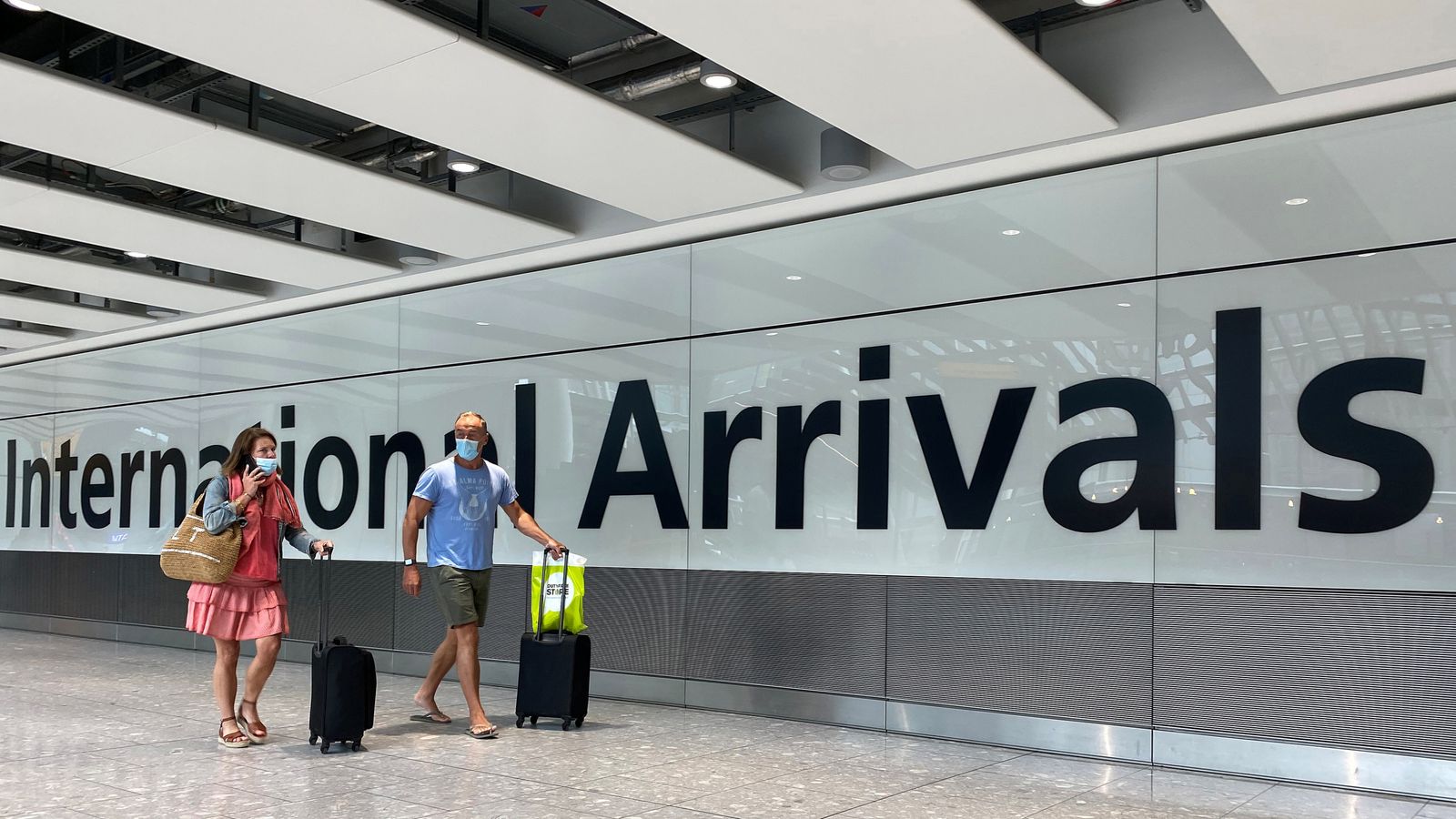Travel firms are calling for the removal of COVID testing restrictions, saying it would have no real impact on the spread of the Omicron variant in the UK.
The call from trade body Airlines UK and Manchester Airports Group (MAG) comes after recent figures showing one in 25 people in England had COVID-19 just before Christmas.
It comes on the day the government is set to review coronavirus travel restrictions.
Please use Chrome browser for a more accessible video player
Currently, fully vaccinated travellers into the UK must take a pre-departure test and self-isolate until they receive a negative result from a post-arrival test.
Those who are not fully vaccinated must self-isolate for 10 days after they arrive.
Last month, the government removed all 11 countries on its travel “red list”, partly reversing the tightening of restrictions in order to contain the spread of Omicron from abroad.
Airlines UK said at the time that costly testing and isolation measures imposed on travellers ought to be removed too for the same reason and has now reiterated that plea.
PM cold on scrapping 5% VAT rate as ministers feel heat over impact of soaring energy bills
COVID-19: 100,000 critical workers to take daily tests in bid to ease Omicron shortages
COVID: Iceland has 11% of staff isolating as retail warns Omicron rules threaten disruption
The trade body and MAG – which operates Manchester, London Stanstead and East Midlands airports – cited research they had commissioned from consultancy Oxera and analytics firm Edge Health to make the latest call.
They said the research showed the removal of all testing requirements on international travel this month would not impact the spread of Omicron in the UK.
It also found that the introduction of pre-departure and day two PCR testing in late November and early December respectively had little impact on the spread of Omicron in the UK, compared to a scenario where the policy of a single day two antigen test remained the same.
The companies said the tightening of travel restrictions hurt the sector last month, with MAG estimating a 30% hit to its recovery in passenger numbers.
They said separate research commissioned by Oxera at the time showed that extra testing in response to Omicron reduced the UK aviation sector’s contribution to the economy by £60m a week.
MAG chief executive Charlie Cornish and Airlines UK chief executive Tim Alderslade said in a joint statement that the health secretary had already acknowledged that the value of any form of restrictions was significantly reduced once Omicron became dominant.
“This latest research by Oxera and Edge Health clearly supports the position that travel testing requirements can be removed in full without impacting overall case rates and hospitalisations in the UK,” they said.
“It should give the UK government confidence to press ahead with the immediate removal of these emergency restrictions, giving people back the freedom to travel internationally to see loved ones, explore new places and generate new business opportunities.
“Travel restrictions come at huge cost to the travel industry, and to the UK economy as a whole, placing jobs at risk and holding back the recovery of one of our most important sectors.
“It is therefore vital they do not remain in place a day longer than is necessary.”
Fears over the Omicron variant and tighter restrictions imposed before Christmas have already been revealed to have had an impact on demand for Tui and Ryanair.
But hopes that conditions will ease – in the light of suggestions that Omicron will be cause less serious illness than other variants – have in recent days created a more optimistic outlook for the aviation sector.
Shares in British Airways owner International Airlines Group (IAG) and other airlines rose sharply on Tuesday helping London stock indices enjoy a strong bounce on the first day of new year trading.






















